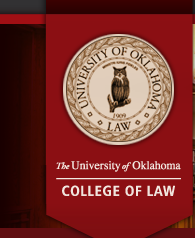Document Type
Article
Publication Date
2023
Publication Title
Kentucky Law Journal
Abstract
Congress delegated to the Securities & Exchange Commission (S.E.C.) the regulation of the sale and trading of securities as well as the solicitation of proxies. The S.E.C. compels disclosure by involved parties to ensure that investors can make informed decisions regarding their trades and the exercise of voting rights with respect to their securities. Such important governmental interests routinely leave one without basis to challenge the compelled speech imposed by the S.E.C. Because it generally can compel speech by parties involved in securities transactions and the solicitation of proxies, the S.E.C. is insensitive to situations when legitimate First Amendment issues emerge. This article proceeds in three parts. Part I is brief and addresses compelled speech under the S.E.C.'s rule regarding conflict minerals, which the D.C. Circuit invalidated under the First Amendment as an ideological, name-and-shame regulation. Part II addresses the S.E.C.'s rule that compelled speech by proxy advisors. Because no court and no scholarship has addressed the rule's validity under the First Amendment, Part II provides a detailed explanation of proxies and their solicitation, the rule, and how that rule unconstitutionally compelled speech. In sum, the S.E.C.'s rule unconstitutionally compelled a proxy advisor-after delivering speech to its clients that advocated a particular positionto deliver to those same clients the speech by a third party that criticized the proxy advisor's original speech. Part III applies the lessons from Parts I and II to a new rule contemplated by the S.E.C. that would compel companies to disclose information regarding the diversity of their boards of directors and workforce. With growing concerns about equity and inclusion, and with the support of S.E.C. commissioners, large investors, and commentators, a rule that requires disclosure regarding board-and-workforce diversity might operate indirectly to cure underrepresentation by protected classes. Judicial decisions, however, display a shift in the primary beneficiaries of First Amendment protection from the politically weak to the financially able and from the individual to the corporation. Though such diversity disclosures would be well intentioned, Part III suggests that compelled diversity disclosures would be at risk of invalidation under the First Amendment.
Volume
111
First Page
199
Recommended Citation
Steven J. Cleveland, The S.E.C.'S Unconstitutionally Compelled Speech, 111 Ky. L.J. 199 (2023).
